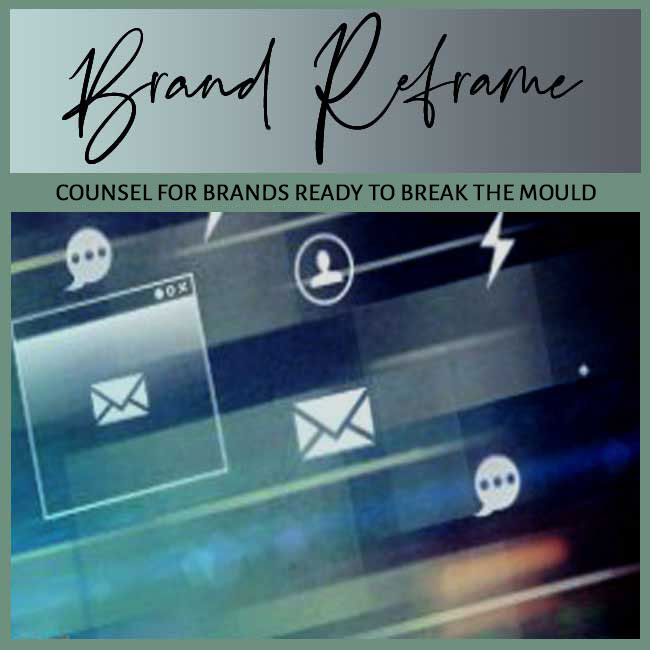
FOCUS: BRAND FOUNDER MISFIT | AUDIENCE: INVESTORS IN SLUGGISH BRANDS
BY: SHOBHA PONNAPPA | BRAND BREAKTHROUGH STRATEGIST | 45 YEARS | 125+ CLIENTS
I answer 6 tough questions about why founders often mistake their personal origin story for the brand’s true value proposition.
I frequently meet founders convinced that the tale of how they started the company is their strongest selling point. At launch, it may feel compelling … investors and early customers love hearing the journey. But as the market matures, emotional backstories alone rarely move buyers. A powerful narrative is not the same as a clear value proposition.
Starting a company is personal and intense, so the founder’s journey feels central to everything. It attracts early believers, shapes culture, and often sparks initial press. But as a market grows, audiences shift from why you started to what’s in it for them. Emotional pride does not guarantee product-market fit.
The excitement of survival and breakthrough moments can blind founders to evolving customer expectations. Over time, competitors arrive with clearer benefits and sharper positioning. Buyers stop resonating with personal passion and want measurable outcomes. Markets reward value clarity over origin tales.
When the brand stays anchored to one founder’s experience, it risks sounding niche or outdated. The story can feel exclusive to insiders rather than inclusive to a growing market. As new segments emerge, this singular past may no longer speak to them. Anchoring too tightly to a founder’s past stalls scalability.
Investors notice when messaging feels like a personal memoir instead of a growth engine. Potential buyers may admire the grit but still choose competitors with clearer solutions. This attachment to the past can delay pivots, product expansions, and strategic upgrades. Over-identification with the founder slows adaptive moves.
A great story inspires; a strong value proposition defines a problem solved better than anyone else. The first builds emotional warmth, while the second creates rational, purchase-driving conviction. Brands need both, but the proposition must lead the story, not hide behind it. Clarity on offer trumps charm of origin.
If a customer cannot explain what the brand does for them in one clear sentence, the narrative has failed. Investors look for that crisp articulation because it scales across markets and channels. A good story makes you likeable; a clear value proposition makes you investable. Likeability without utility rarely drives growth.
First, founders must separate personal pride from market proof. This means reframing the brand’s message to focus on the buyer’s pain point and solution benefits. Origin details should support, not dominate, the positioning. Shifting spotlight from self to solution is essential.
Next, test the new articulation with real customers and potential investors. See if the brand promise feels sharper and more valuable. Adjust visuals, messaging, and channels to match the clarified proposition. Validating beyond the founder bubble creates sustainable relevance.
Investors seek brands that scale beyond one person’s charisma. They need proof that the business can thrive without the founder always telling the tale. A clear proposition makes marketing repeatable and acquisition cost predictable. Scalability lives in clarity, not personality.
When a company is too founder-centric, exit or growth potential feels risky. Investors fear the brand will collapse if the founder steps aside. Strong value propositions build independence from personality-led momentum. Clear value equals lower risk and higher growth appeal.
Start by auditing current messaging and pitch decks for founder-centric language. Count how often “I” or “my journey” appears versus clear customer impact. This reveals if the balance is skewed toward biography rather than benefit. Measurement helps shift focus from past to proposition.
Then, rebuild messaging frameworks around the customer’s gain and the market gap you fill. Keep the origin story but position it as a credibility point, not the whole pitch. Update visuals and channels to align with this more scalable identity. A disciplined reset re-centres the brand on lasting value.
If these questions feel uncomfortably close, your brand might be stuck in a narrative bubble rather than a growth-ready market stance. Relying too long on an inspiring journey can leave real buyers unclear on what you deliver today. The good news? A focused shift to a clear, scalable value proposition can unlock growth and investor confidence. When you lead with buyer impact, your story becomes a powerful support act … not the main show.
If you’re brand owner or manager seeking stronger brand performance, this FAQ Insight Post I wrote could interest you: “FAQs: Why Great Launch Hype Can Still Miss the Market.“
And if you’re a solo expert looking to sharpen traction, this FAQ Insight Post I worked on may resonate: “FAQs: When Customers Know the Product but Forget the Brand.“

"One BIG IDEA can turn brand stagnation into unstoppable movement. Spots are limited each week ... book your breakthrough session now."
Shobha Ponnappa
More Breakthrough Ideas … Case Studies & FAQs … from the Brand Founder Misfit Category
Case Studies
FAQ Insights
Smart insights, real-world frameworks, and idea-driven clarity – designed to help brands move.
Get my fortnightly Brand Reframe newsletter. Smart insights, distilled thinking, and focused momentum to help your brand lead.

Get my free AI strategy guide. Smart prompts, sharper briefs, and practical ways to make AI support your brand momentum.

Just fill in the form to join. Get my newsletter and the guide shown alongside, all with several game-changing tips.